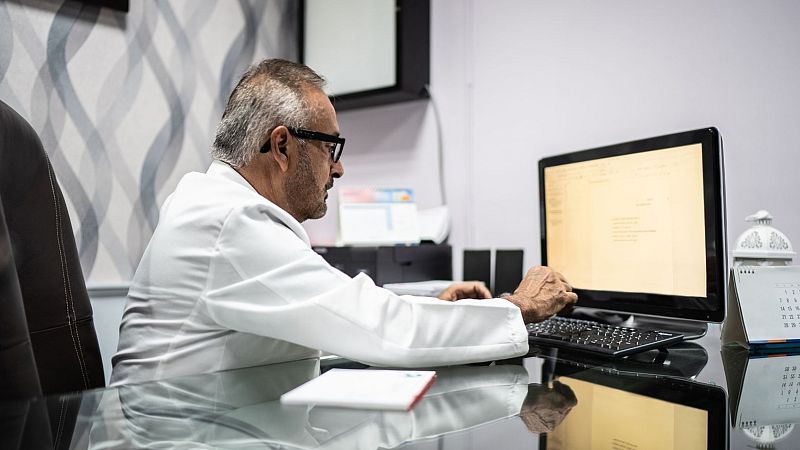New AI tool predicts risk of more than 1,000 medical conditions a decade in advance

Scientists say they have created a new artificial intelligence (AI) tool that can predict people’s risk of developing more than 1,000 medical conditions.
The model can forecast whether a patient will develop certain cancers, heart attacks, and other conditions more than a decade before they are formally diagnosed, according to the study, which was published in the journal Nature on Wednesday.
“This is the beginning of a new way to understand human health and disease progression,” Moritz Gerstung, head of the AI in oncology team at the German Cancer Research Centre (DKFZ), said in a statement.
As AI advances into the medical field, the researchers said the new tool is one of the largest examples to date of how AI could be used to help patients.
The model was trained using anonymised data from 400,000 people in the United Kingdom and then tested using data from 1.9 million people in Denmark.
It learned to identify patterns that, over time, tend to culminate in serious health conditions – for example, using previous diagnoses and smoking histories. Considering both the order of these events and the amount of time between them, the model could then predict a patient’s risk of developing various diseases.
The researchers stressed that the model’s predictions do not mean a patient will definitely get sick – rather that they are at higher risk. They compared it to a weather forecast.
They also said that the model is more accurate with conditions with “consistent progression patterns,” such as certain forms of cancer, diabetes, heart attacks, and a type of blood poisoning known as septicaemia. It is also generally more accurate over the near-term than the long-term.
However, the model is less reliable for issues that are harder to anticipate, such as mental health problems, infectious diseases, and pregnancy-related complications.
The model is proof that AI can “learn many of our long-term health patterns and use this information to generate meaningful predictions,” said Ewan Birney, interim head of the European Molecular Biology Laboratory (EMBL).
In a statement, Birney called the model “a big step towards more personalised and preventive approaches to healthcare”.
EMBL and DKFZ worked with the University of Copenhagen to build the model.
The study authors said the AI tool is not yet ready to be used in doctors’ offices, but that it can already help researchers understand how diseases develop over time and how people’s lifestyles and medical histories affect their health risks.
However, independent experts noted that the model was trained and tested on UK and Danish datasets that are biased in terms of age, ethnicity, and health outcomes. More work would be needed to ensure the model can accurately predict disease risk for more diverse groups of people.
The researchers said that in the future, the tool could help physicians identify high-risk patients before they fall ill.
Gerstung said the tool could “eventually support earlier, more tailored interventions”.
Today

